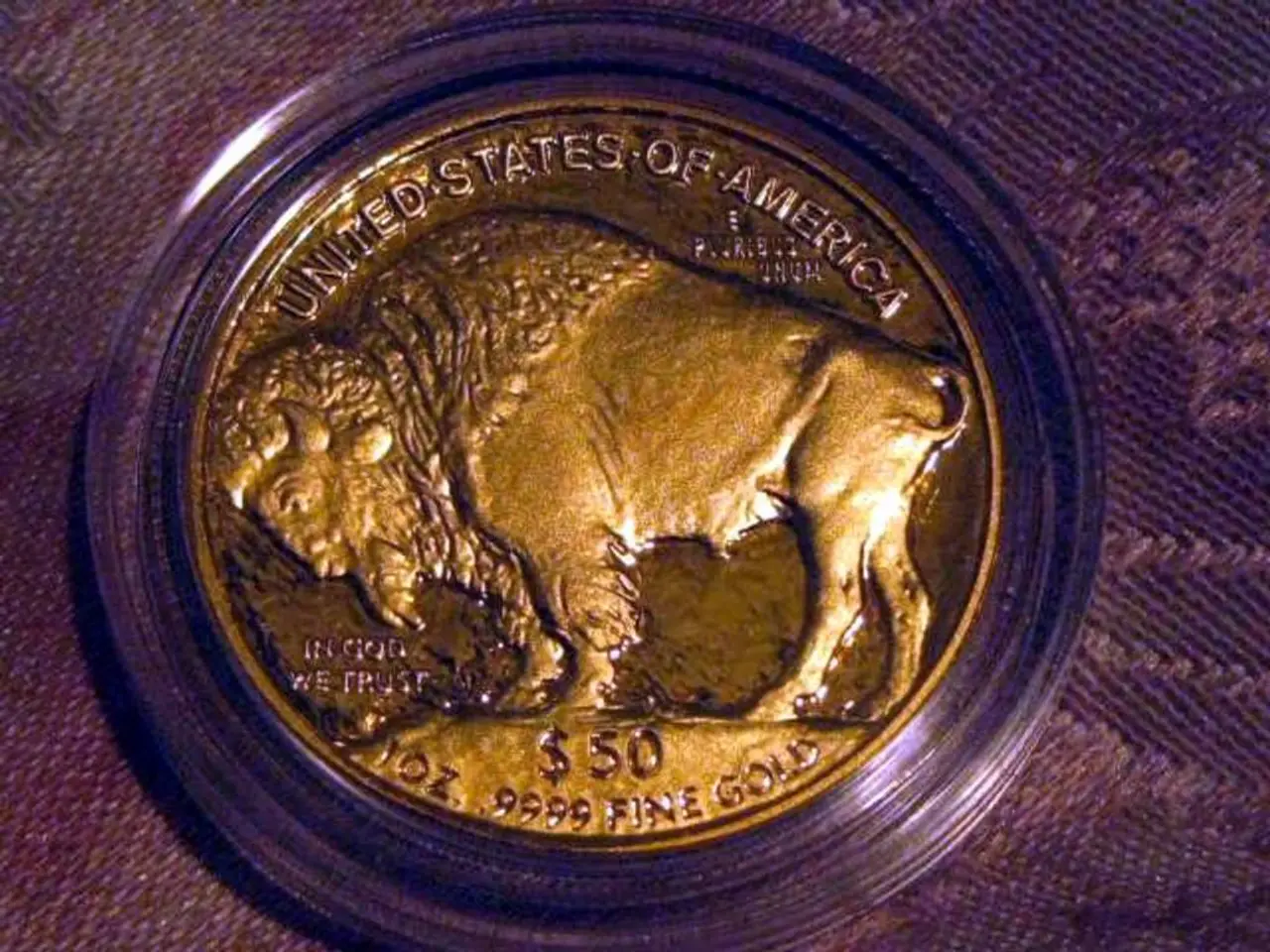Germans and Italians demand the return of gold from America home
When the talk turns to bringing the gold of a country like Zimbabwe back home, it's a simple matter. But when it's louder in countries like Germany and Italy, currently holding the 2nd and 3rd largest gold reserves with 3352 and 2452 tons respectively, according to the World Gold Council, it's a whole different ballgame. This suggests, at the very least, a loss of trust in the United States, long considered a safe "vault" to store money and gold. Add to that the regular attacks by President Trump on Federal Reserve Chairman Jerome Powell, who, despite pressure from the White House and Trump himself, refuses to lower key interest rates; and, of course, the geopolitical chaos that has reached unprecedented heights this year.
In Germany and Italy, the movement for returning the gold from the U.S., valued at approximately a quarter trillion dollars (245 billion USD), is growing. As Financial Times reports, former European Parliament member Fabio de Mas, now with the Alliance 90/The Greens, claims that in these "tumultuous times," there are "good reasons" for returning German gold from America, stored in the Federal Reserve Bank of New York on Manhattan, back to its homeland, or at least to Europe. In Germany, the idea of bringing the gold home enjoys support not just from the opposition but also from the ruling Christian Democratic Union (CDU).
"We need to answer the question: Has storing gold abroad become safer in the last 10 years, or not?- FT quotes Peter Gauweiller of the Christian Social Union (CSU), a longtime ally of the CDU, to whom he himself responds: - The answer is clear..."
The European Taxpayers' Association (ATA) has written open letters to the Finance Ministries and central banks of both Germany and Italy, urging a review of their relationship with the Federal Reserve.
"We are very concerned about attacks by Trump on the Federal Reserve's independence,- declares ATA president Michael Egger. - We advise bringing the gold (both German and Italian) back home to always keep it under the control of European central banks."
Before the trip of Italian Prime Minister Giuseppe Conte to the U.S. in April, renowned economist Enrico Grazzini wrote in Il Fatto Quotidiano: "Italy is storing 43% of its gold reserves in America under an unreliable Trump administration, which is extremely risky for national interests (Italy)."
A very recent survey of more than 70 central banks shows that more of them are thinking about storing gold at home to have direct access to it during a potential crisis.
Keeping gold reserves overseas in Europe in the past century was largely due to fears of Soviet invasion. However, France, in the mid-60s, transferred much of its gold kept abroad to Paris after President de Gaulle lost faith in the Bretton Woods monetary system.
In Germany, discussions about the "repatriation of gold" gained traction in 2010. Three years later, the Bundesbank, Germany's central bank, decided to store half of the gold domestically and transported 674 tons from New York and Paris to Frankfurt. By the way, transporting that gold cost German taxpayers 7 million euros. Today, only 37% of Germany's gold reserves remain in New York.
In 2019, the "Five Star Movement," then in opposition, called for the repatriation of Italy's gold reserves. Meloni, during her election campaign leading to her winning power at the end of 2022, promised Italians that if elected, she would return the gold home. However, upon taking office, she seems to have forgotten about this promise. Giuseppe Conte wants to maintain good relations with Donald Trump and therefore prefers, at least for now, not to raise this issue.
It seems that they don't want to spoil relations with Washington and the German Central Bank, which claims it constantly monitors German gold in the basement vaults of the New York Fed.
"We have no doubts that the New York Fed is a reliable partner and that it can be trusted to store Germany's gold reserves (- Bundesbank statement)."
[1] Heibria, Gheith, and O'Brien. "Italians Are Demanding Their Gold Be Repatriated From the U.S." Bloomberg, March 11, 2021. https://www.bloombergquint.com/global-economics/italians-are-demanding-their-gold-be-repatriated-from-the-us
[2] Knight, Angela. "Germany's Gold: The Battle to Bring It Home." The Asset, April 19, 2021. https://www.theasset.com/magazines/kgermans-gold-the-battle-to-bring-it-home
[3] Kahn, Clive. "Italy and Germany Push to Repatriate Gold from US." Financial Times, March 11, 2021. https://www.ft.com/content/47a54a8f-a7d5-4125-a4cc-a6c987c14e5c
[4] "Why Countries Are Now Repatriating Their Gold Bullion." CNN Business, August 10, 2018. https://www.cnn.com/2018/08/10/investing/germany-italy-gold-bullion/index.html
- The growing movement in Germany and Italy to bring their gold reserves, valued collectively at around a quarter trillion dollars, stored in the Federal Reserve Bank of New York, advocates for returning them to their respective homelands or at least Europe.
- Citing the uncertainty and geopolitical instability brought about by President Trump's attacks on the Federal Reserve's independence, the European Taxpayers' Association (ATA) has urged the Finance Ministries and central banks of both Germany and Italy to review their relationship with the Federal Reserve, suggesting that storing gold domestically might be a safer option.





